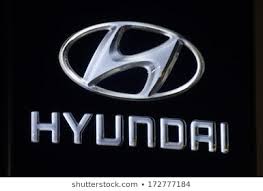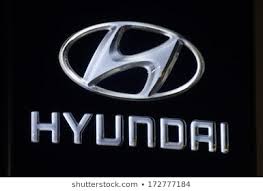
Electrification is the need of the hour as well as the future of the global auto industries. All of the global auto giants are well aware of the need to quickly develop technologies, expertise and capacity to manufacture electric powered vehicles much faster than they need to develop new pollution suppressing technologies for the vehicles with internal combustion engines. And they are spending billions to attain that capacity.
The latest in this line is the South Korean auto giant Hyundai Motors which announced on Wednesday that it would make an investment of about 61.1 trillion won between 2020 and 2025. About one third of the money will be directed at development of technologies and capacities for electric and autonomous cars.
However analysts say that they want to see the company actually making investment in the next generation technologies.
Under its "Strategy 2025" road map as unveiled by the South Korean carmaker, the company plans to make an annual average spending of 10 trillion won. That amount of investment is more than what it did in the previous years and more than the 6.1 trillion won that it had invested in 2018.
The revelation of the news resulted in a 2 per cent growth in the shares of the company but the stocks fell back and gave up most of the gains made by the close of trade. Analysts and investors are now waiting to see whether the company is able to translate its announcement into action.
"Its announcement of investment plan and goals is full of good words, but not real results yet," said Lee Han-joon, an analyst at KTB Investment & Securities. "The plan itself also wasn't an amazing one."
One of the focuses of the top car maker of South Korea is to catch up with some of its rivals as well as startups in the area of self-driving cars and bringing them to market.
Euisun Chung, the executive vice chairman of the company said that the company is also planning to develop flying cars and believes that it would be much easier to commercialize the innovation much before it would be possible to commercialize the most advanced self-driving cars.
Hyundai said in a presentation to investors that in the current trend of a shift of the auto industry towards zero-emission and self-driving technology, ensuring that the companies survive is the key because of the need to make investments for developing those new technologies. This has become more acute because slowing demand and sale of cars had hit company profits significantly.
The area of future technologies will receive over a period of six year about 20 trillion won of the total investment, the company said.
The company further said that it wants to see itself among the top three companies of the world in the area of manufacturing of battery and fuel cell vehicles, by 2025, which is an ambitious deadline according to some analysts. The company also has set a target of achieving annual sales of 670,000 electric vehicles would include sale of about 560,000 battery powered cars.
By 2022, the company also wants to cut raw down its costs for material by 34.5 trillion
"So, the goal is set, now results should be good, with good products being delivered," said Kim Jin-woo an analyst at Korea Investment & Securities. "That's when investors will make a decision about their bets on Hyundai."
(Source;www.businessworld.in)
The latest in this line is the South Korean auto giant Hyundai Motors which announced on Wednesday that it would make an investment of about 61.1 trillion won between 2020 and 2025. About one third of the money will be directed at development of technologies and capacities for electric and autonomous cars.
However analysts say that they want to see the company actually making investment in the next generation technologies.
Under its "Strategy 2025" road map as unveiled by the South Korean carmaker, the company plans to make an annual average spending of 10 trillion won. That amount of investment is more than what it did in the previous years and more than the 6.1 trillion won that it had invested in 2018.
The revelation of the news resulted in a 2 per cent growth in the shares of the company but the stocks fell back and gave up most of the gains made by the close of trade. Analysts and investors are now waiting to see whether the company is able to translate its announcement into action.
"Its announcement of investment plan and goals is full of good words, but not real results yet," said Lee Han-joon, an analyst at KTB Investment & Securities. "The plan itself also wasn't an amazing one."
One of the focuses of the top car maker of South Korea is to catch up with some of its rivals as well as startups in the area of self-driving cars and bringing them to market.
Euisun Chung, the executive vice chairman of the company said that the company is also planning to develop flying cars and believes that it would be much easier to commercialize the innovation much before it would be possible to commercialize the most advanced self-driving cars.
Hyundai said in a presentation to investors that in the current trend of a shift of the auto industry towards zero-emission and self-driving technology, ensuring that the companies survive is the key because of the need to make investments for developing those new technologies. This has become more acute because slowing demand and sale of cars had hit company profits significantly.
The area of future technologies will receive over a period of six year about 20 trillion won of the total investment, the company said.
The company further said that it wants to see itself among the top three companies of the world in the area of manufacturing of battery and fuel cell vehicles, by 2025, which is an ambitious deadline according to some analysts. The company also has set a target of achieving annual sales of 670,000 electric vehicles would include sale of about 560,000 battery powered cars.
By 2022, the company also wants to cut raw down its costs for material by 34.5 trillion
"So, the goal is set, now results should be good, with good products being delivered," said Kim Jin-woo an analyst at Korea Investment & Securities. "That's when investors will make a decision about their bets on Hyundai."
(Source;www.businessworld.in)





